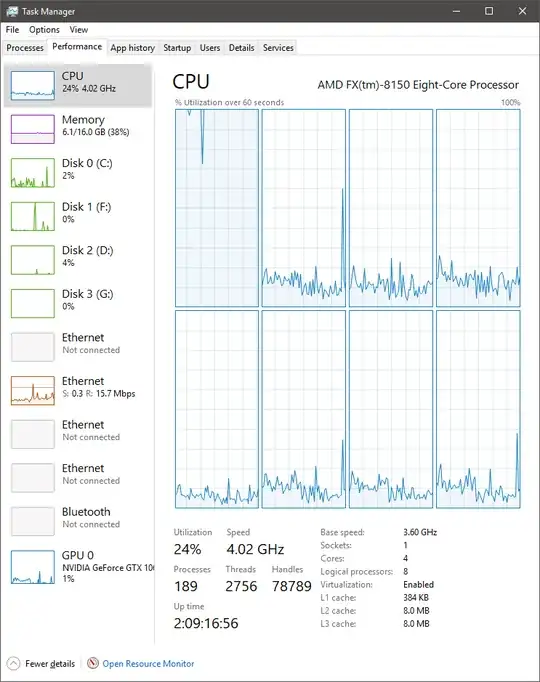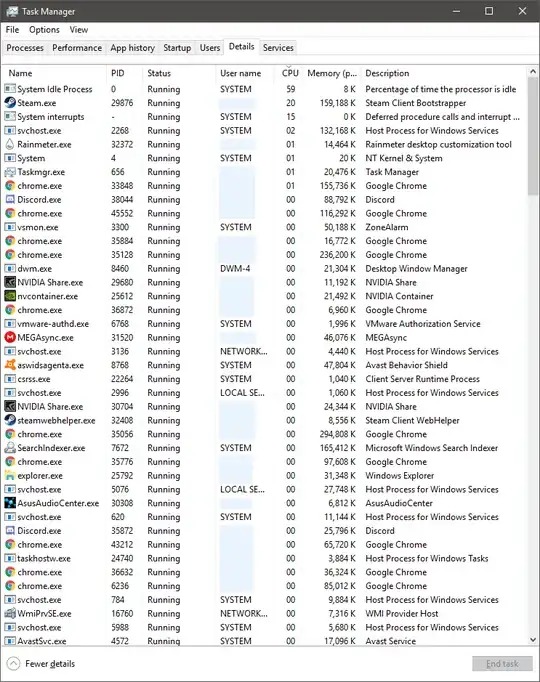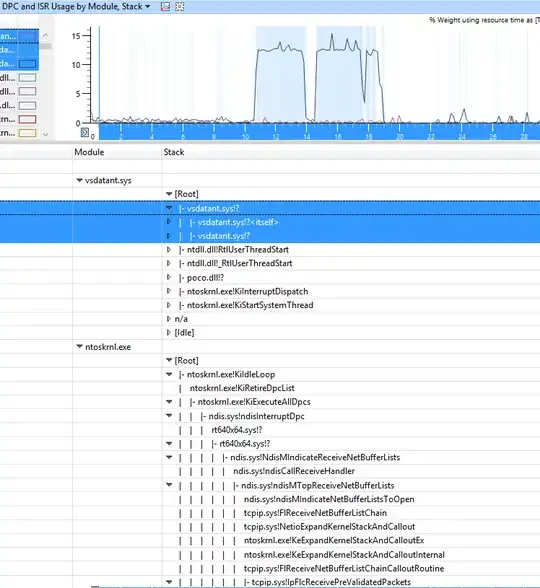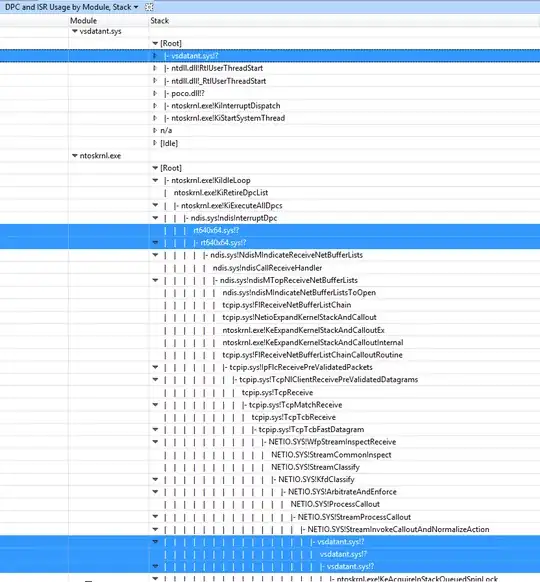My problem
Whenever I download a large amount of data (ex: downloading a game from Steam), my entire PC comes to a crippling low <1 frame per second, despite having relatively decent hardware. This only seems to happen with large downloads as I can download single images and webpages without issue. To make matters more confusing, this issue used to not be present on this machine prior to being upgraded to Windows 10 (from Windows 7 Home) as well as potentially for a short period afterwards that I don't recall the issue occurring. Another thing to note is that I do not have WiFi in this computer, only Ethernet.
My question
What is the cause of this poor performance I am experiencing and how do I fix this?
My theory
It would seem that Windows insists on downloading large downloads on the first core listed in task manager every time. This is supported by this screenshot of Task Manager that I took while downloading a game:
Processes running while downloading a game:
I do not know if this is the intended behavior or if it is actually the root of the problem. But so far I don't have any evidence that disqualifies it.
Things I have tried
- Updating my Ethernet driver (Realtek PCIe GBE Family Controller) multiple times
- Adjusting my power plan
- Making sure Windows is up to date.
- Using latencymon to investigate driver latency. It frequently shows massive latency with ndis.sys (when downloading files) that I have been unable to resolve. I assume this is related in some way.
My relevant system specs
- Windows 10
- AMD FX-8150 CPU
- GTX 1060 6GB GPU
- 16 GB 1600Mhz DDR3 RAM
- Multiple drives (boots from a 256GB Corsair SSD)



